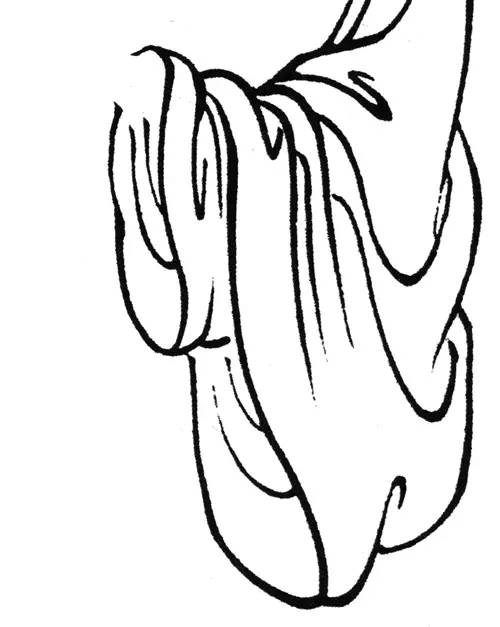During the Five Dynasties and Ten Kingdoms period, there was a common phenomenon of frequent changes in emperors. The rulers of each dynasty and generation had relatively short lifespans and reigns, ranging from a few years to only a few months. However, among these numerous monarchs, Meng Renzan, the fallen ruler of Later Shu, was an exception.
He ascended to the throne in 934 AD and passed away due to illness in 965 AD, lasting a total of thirty-two years. He was the longest reigning emperor during the Five Dynasties and Ten Kingdoms period. Interested readers and history encyclopedia editors, let’s take a look together!
Meng Renzan’s background is not very good. His mother, Li Shi, was once a concubine of Li Cunxu, the founding emperor of the Later Tang Dynasty. After Li Cunxu passed away, Meng Zhixiang married the Li family and soon after had a son named Meng Renzan, who later changed his name to “Meng Chang”.
There are some differences in the historical records regarding Meng Renzan’s ranking among the sons.
In official history, he is referred to as the third son of Meng Zhixiang. According to the epitaph of Princess Fuqing, she had four sons. The eldest and second sons died young, while only the third and fourth sons survived. Therefore, according to historical records, Meng Renzan was the eldest son of Li and Meng Zhixiang, ranking fifth among all the sons.
As for why Meng Zhixiang passed the throne to Meng Renzan instead of his two legitimate sons Meng Yiju and Meng Yiye, this is also controversial in the field of history. However, there is still no consensus so far.
In 934 AD, Meng Zhixiang suddenly fell ill during a banquet for ministers, and immediately announced Meng Renzan as the Crown Prince, appointed to oversee the country. The next month, after Meng Zhixiang passed away, Meng Renzan succeeded to the throne and changed his name to Meng Chang.
Before his death, Meng Zhixiang entrusted several important officials who supported him, including Zhao Jiliang, Wang Chuhui, Li Renhan, and Zhang Ye. Among them, Li Renhan and Zhang Ye were relatives of his uncle and nephew, with Li Renhan holding a heavy army and Zhang Ye in charge of the Forbidden Army. The uncle and nephew colluded and relied on each other, without even considering Meng Chang, the newly crowned young ruler, and acted arrogantly and recklessly in the court.
Meng Changgang ascended the throne not long ago, and his power was not yet mature. In order to save his life, he had to adopt a strategy of blindly giving in.
However, upon seeing the emperor remain silent, several important officials not only exuded arrogance in court, but also acted recklessly in private. Building houses on a large scale, encroaching on fertile land, and collecting wealth in various ways at home. Especially Zhang Ye, relying on his control over tens of thousands of forbidden troops and the lifeline of the imperial palace, set up a private court at home and tortured officials and civilians who refused to obey, causing a very bad impact on the people and arousing public anger.
After Meng Chang ascended the throne for several months, he finally cultivated his own power. Not long after, he conspired with his confidants and used thunderous means to successively eliminate the powerful officials Li Renhan, Zhang Ye, and their entire clan, eliminate the corrupt and vicious Zhao Tingyin, Li Zhao, and other traitors, clarify the atmosphere in the court, and intimidate the civil and military officials in the country. This move was also widely praised by the people.
During the reign of Meng Chang, it happened that many regimes in the Central Plains were attacking each other, and the Shu River occupied the strategic terrain in the southwest that was easy to defend but difficult to attack. So, no regime brought the war to Later Shu.
On the contrary, Meng Chang not only lived a carefree and luxurious life in the land of abundance, but also took advantage of the Central Plains regime’s lack of time to send troops to the Guanzhong region, stealing a lot of benefits.
Throughout the more than thirty years of Meng Chang’s reign, he did not make any outstanding contributions or commit any major mistakes. Although somewhat extravagant in daily life, overall, the Later Shu was relatively stable in politics, and the lives of the people were very peaceful.
Therefore, Meng Chang held a high position in the hearts of the people of Later Shu.
In 965 AD, with the rise of the Great Song Dynasty, troops were continuously sent to attack Sichuan and other areas. Meng Chang, in order to save the people of Later Shu from the suffering of war, surrendered to the Song Dynasty after a slight resistance. When Meng Chang was escorted to the capital, tens of thousands of people from Later Shu traveled hundreds of miles along the river. Along the way, the people cried and howled incessantly, and many of them fainted due to excessive sadness. The scene was very touching.
Under the influence of this situation, Meng Chang also cried all the way. Due to excessive sadness, his body was damaged by crying, and he passed away shortly after arriving in Bianliang.
Meng Chang was the longest serving emperor during the Five Dynasties and Ten Kingdoms period, and the only emperor who was moved to tears by the people.


